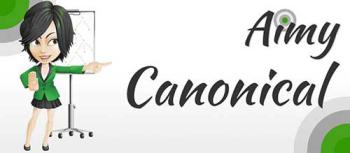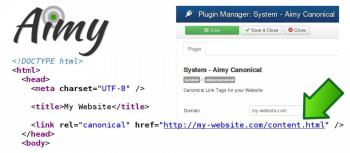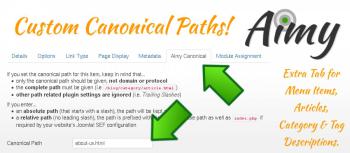Only VIP and logged in users can download this file. Login OR Register Now.
Aimy Canonical creates a canonical link tag for your website. If your website can be visited via more than one URL you can set the preferred domain name and protocol (http, https) with this plugin. For search engine optimization (SEO) you prevent the duplicate content problem by defining a canonical URL.
Aimy Canonical is easy to use and set up within less than 5 minutes: Install the plugin, type in the URL once for all of your website's pages in the plugin configuration and save your changes!
Additional Pro Features:
- Set custom canonical path (in Joomla! articles, categories, tags and menu items)
- Enables VirtueMart Canonical SEF URLs
- Support for more third party extensions (i.e. HikaShop)
- Add query strings for pagination (i.e. ?start=4)
- Includes workarounds for broken SEF URL paths
- Custom handling of trailing slashes (canonical URL paths)
- Automatically removes unnecessary canonical link tags (cleanup head)
- Allows to redirect on canonical URL mismatches
What is a canonical link tag (canonical URL)?
A canonical link tag can be set in the head of an HTML-document.
If content of a website can be reached via more than one URL, the canonical link tag defines its original source. It helps search engines to index the correct page and prevent indexing duplicate content.
Please note that the canonical link tag is a recommendation for search engines only - it is not guaranteed, that it will be used.
When do I need to set a canonical link?
Typical cases to use a canonical link are:
- the website can be reached via http and https (protocol)
- the website has more than one domain (my-website.com and mywebsite.com)
- there is a print version of the website
- The URLs include query strings (?value=1)
- An Joomla! article is pointed to by two menu items (for example single article instead of using an alias)
- the website uses pagination







